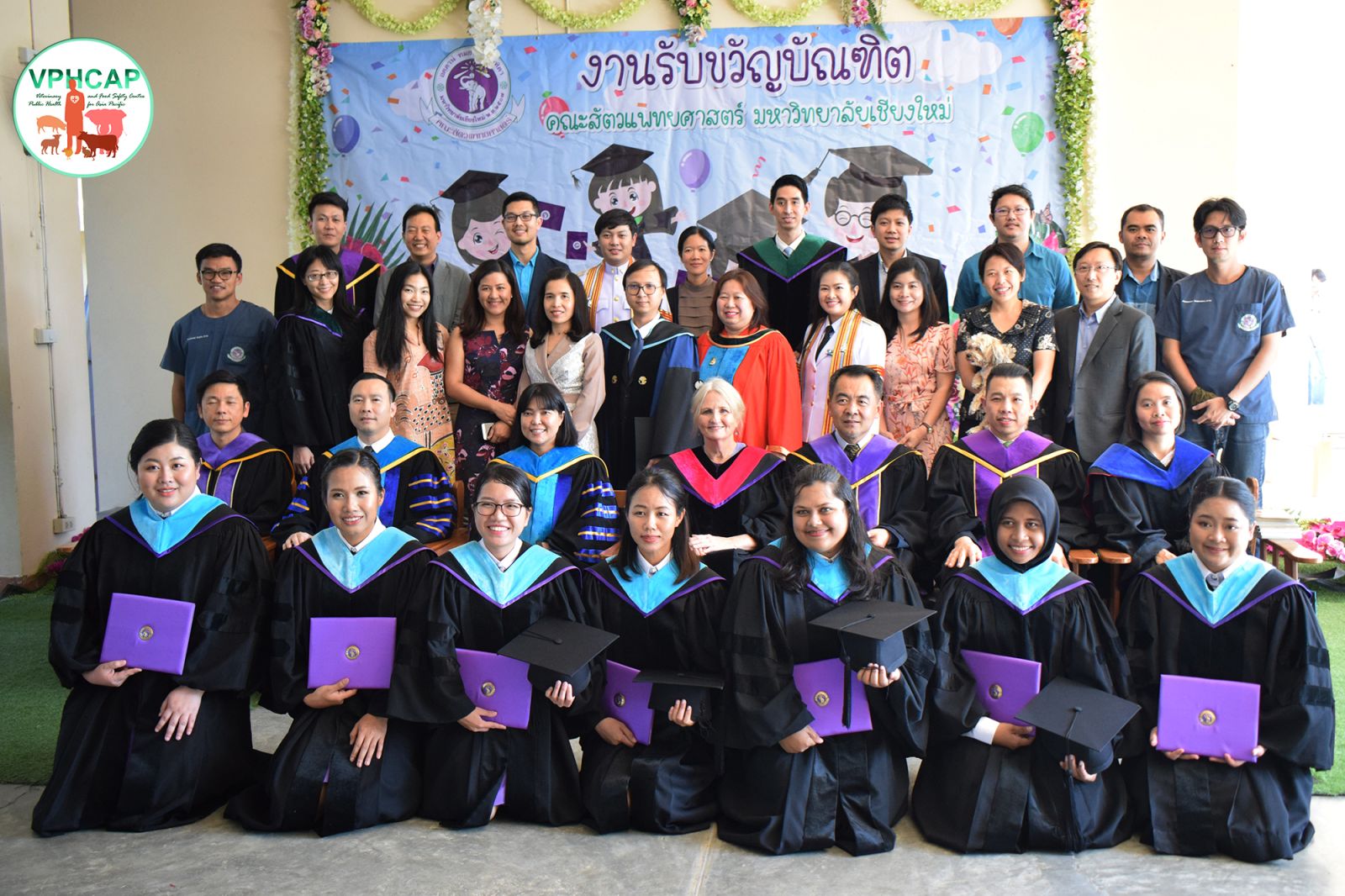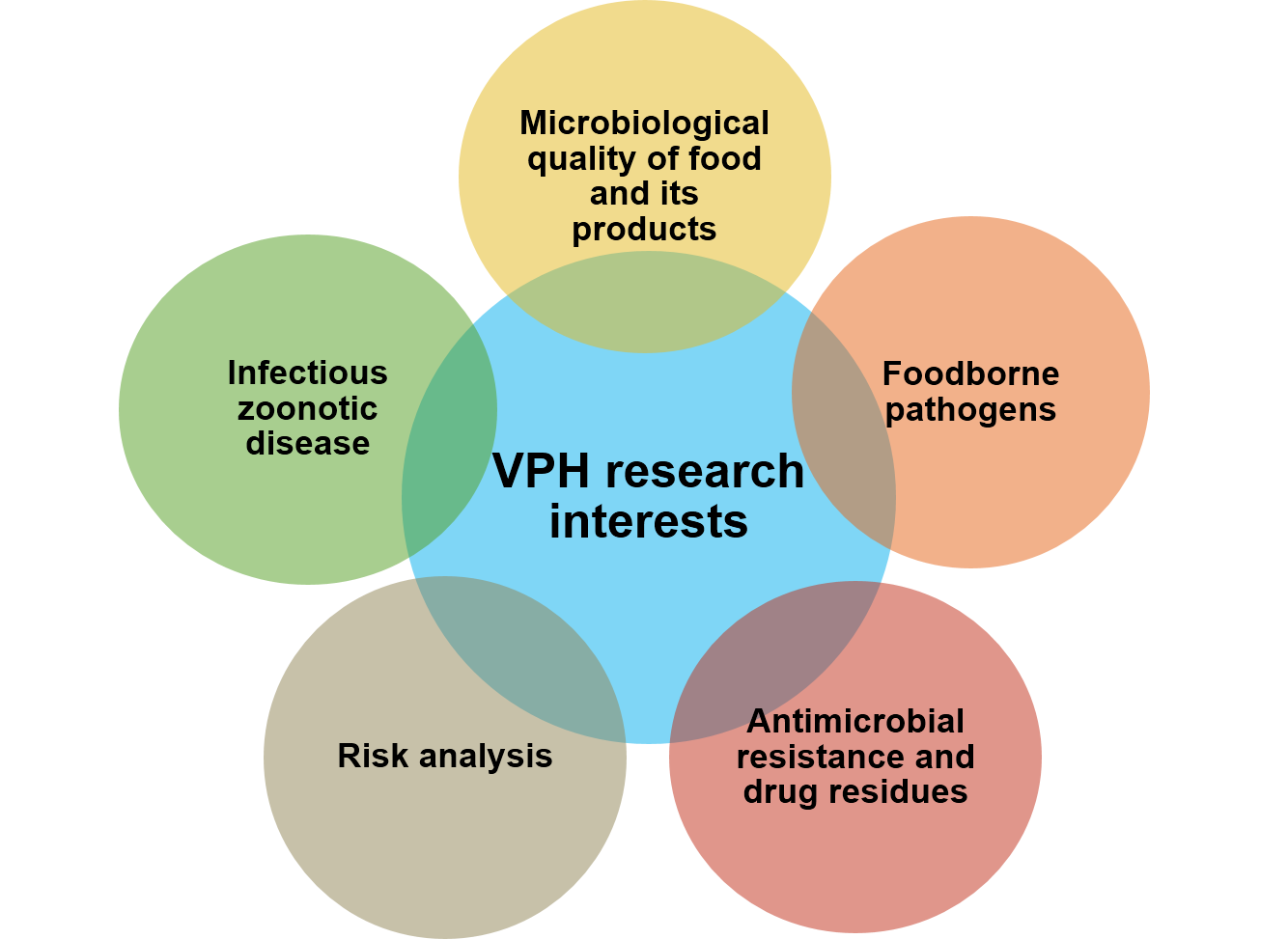Master of Science (Veterinary Public Health) Program

About the Program
Since 2003, the Master of Science in Veterinary Public Health (International Program) has been offered by the Veterinary Public Health and Food Safety Centre for Asia Pacific, Faculty of Veterinary Medicine, Chiang Mai University, Thailand. The program is designed to produce graduates from diverse countries with comprehensive competencies in veterinary public health, while also fostering international networks of expertise in areas such as zoonotic disease prevention and control and food hygiene. Particular emphasis is placed on quality assurance and the safety of food of animal origin throughout the production chain, as well as on environmental hygiene at the regional level.
The curriculum promotes a student-centered learning environment and emphasizes universal knowledge that enables graduates to address problems in their home countries and regions. At the same time, it encourages students to focus on local challenges by conducting research projects under the supervision of professors and experts from Thailand and partner countries. Through this process, students develop systematic approaches to problem-solving within the discipline of veterinary public health, thereby contributing to the advancement of new knowledge in the field.
Objectives
The program aims to produce highly qualified graduates who are able to:
-
Apply epidemiological approaches to ensure the safety of food of animal origin.
-
Analyze and assess the risks of epidemics, zoonotic diseases, and other infectious diseases, while understanding conditions related to food hygiene and the importation of goods.
-
Demonstrate effective communication and interpersonal skills to manage and control zoonotic diseases in accordance with international standards and practices.
-
Apply international rules and regulations in veterinary public health with professionalism, ethics, and integrity, while remaining adaptable to global changes.
-
Utilize veterinary public health principles to address and resolve regional problems.
Overseas Partners
- Freie Universität Berlin, Germany
- University of Minnesota, USA
- Obihiro University of Agriculture and Veterinary Medicine, Japan
Study Plan (2-Year Program)
Students are required to complete a minimum of 36 credits, distributed as follows:
- Coursework: 24 credits
- Thesis: 12 credits
In addition, students may be required to enroll in non-credit courses or participate in other academic activities as determined by the university, with satisfactory completion of these requirements forming part of the overall program expectations.
Research Interests

The discipline of Veterinary Public Health fosters ongoing research aimed at addressing regional challenges, with a particular focus on food safety and zoonotic diseases. Research topics are often grounded in the contexts of students’ home countries and their professional experiences. Areas of emphasis include the microbiological quality of food and food products, infectious zoonotic diseases, foodborne pathogens, risk analysis, antimicrobial resistance, drug residues, and related issues.